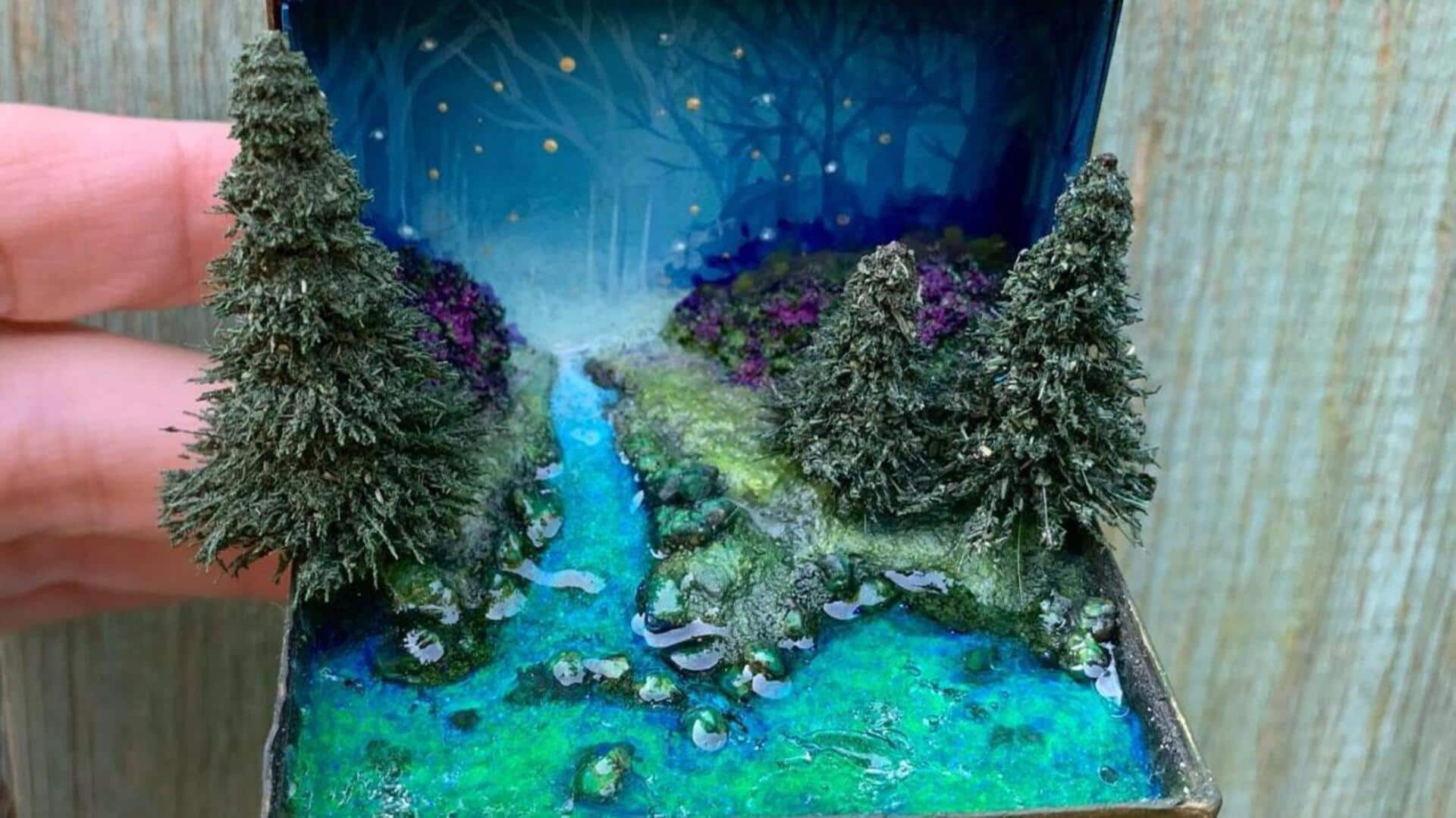
An introduction to diorama art
What's the story
Diorama art is a captivating form of miniature art that lets you construct intricate, detailed scenes in confined spaces. These small-scale models can depict anything between historical events to fantastical worlds, offering an interesting way to tell stories and capture moments in time. The beauty of diorama art is in its ability to take you inside these miniature worlds, igniting imagination and creativity.
Material selection
Choosing the right materials
Selecting the right materials is essential for making a successful diorama. Popular materials are foam board for structure, clay for sculpting details, and acrylic paints for adding color. Also, incorporating natural elements such as sand or small rocks can make the scene look more realistic. Make sure to choose materials that are easy to work with and match the scale of your project.
Scene design
Planning your scene
Before you start construction, it's important to plan your scene well. Think about what story you want your diorama to tell and how each element will contribute to this story. A rough sketch can help you visualize how the final product will look like and if all components will fit together perfectly. This planning stage is crucial for achieving the balance and coherence of your diorama.
Realism tips
Techniques for realism
Achieving that level of realism in diorama art requires an eye for detail and technique. Layering paint can give it depth, while dry brushing highlights textures on surfaces like rocks or foliage. Scale models or figures give them life and context. Lighting can also play an important role; strategically placed lights can mimic natural sunlight or create dramatic shadows.
Preservation tips
Maintaining your diorama
Once you're done, maintaining your diorama is key to keeping it in good condition for years to come. Keep it away from direct sunlight as UV rays may fade colors. Dust it regularly with soft brushes or compressed air cans made for cleaning electronics. If possible, display under glass or acrylic covers to protect it from dusting while still making your creation visible fully.